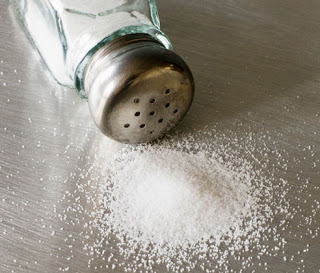Researchers at Duke University Medical Center along with some Australian scientists have discovered that blocking addiction-related nerve pathways in the brain can have a significant impact on sodium appetite. Basically, the nerve cells and connections affected by addictive drugs are the same as those affected by salt.“Their rodent research shows how certain genes are regulated in a part of the brain that controls the equilibrium of salt, water, energy, reproduction and other rhythms — the hypothalamus. The scientists found that the gene patterns activated by stimulating an instinctive behavior, salt appetite, were the same groups of genes regulated by cocaine or opiate (such as heroin) addiction.”Researchers provoked this instinctive behavior in mice either by using a diuretic and withholding salt for a period of time

Monday, November 25, 2024
Real time coverage of developments and trends in health care

